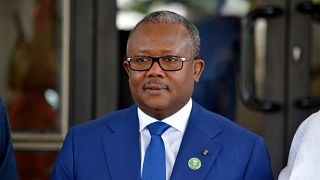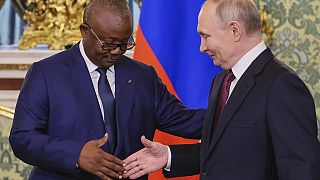Guinea-Bissau
There’s growing uncertainty in Guinea-Bissau following a disputed post-electoral outcomes. The opposition leader Umaro Sissoco Embalo took his own presidential oath late February without a final ruling from the Supreme Court.
On the streets of Bissau, residents are worried about renewed tension and growing weariness of the political class.
“We can no longer tolerate these delays in Guinea-Bissau because of political problems! It’s always the people who pay the consequences. They don’t make the slightest sacrifice for our well-being. They just wear us out and we get nothing out of it. Why?, Zeca Nunos Correia queried.
For Jurdao, a supporter of the PAIGC “Our families are concerned, they call us from the village every day. We tell them to calm down because we hope nothing will happen. They can continue their political quarrels as they want, we have already finished our work.”
One of the poorest countries in the world, Guinea-Bissau has suffered prolonged instability since its independence, with the army often playing a major role. The country has suffered four coups and 16 attempted coups since 1974, the last one in 2012.
AFP













01:21
Cameroon 2025: Maurice Kamto seeks to vie on a different political outlook
01:52
Togo’s security forces cast early votes ahead of high-stakes municipal elections
01:54
"Great economic potential in Africa": five African leaders have lunch with Trump
Go to video
Togo suspends French state-owned broadcasters RFI and France 24
Go to video
Protesters gather in Ivory Coast, demand Thiam's return on electoral list
02:13
Cameroon: Police, opposition supporters clash as election looms